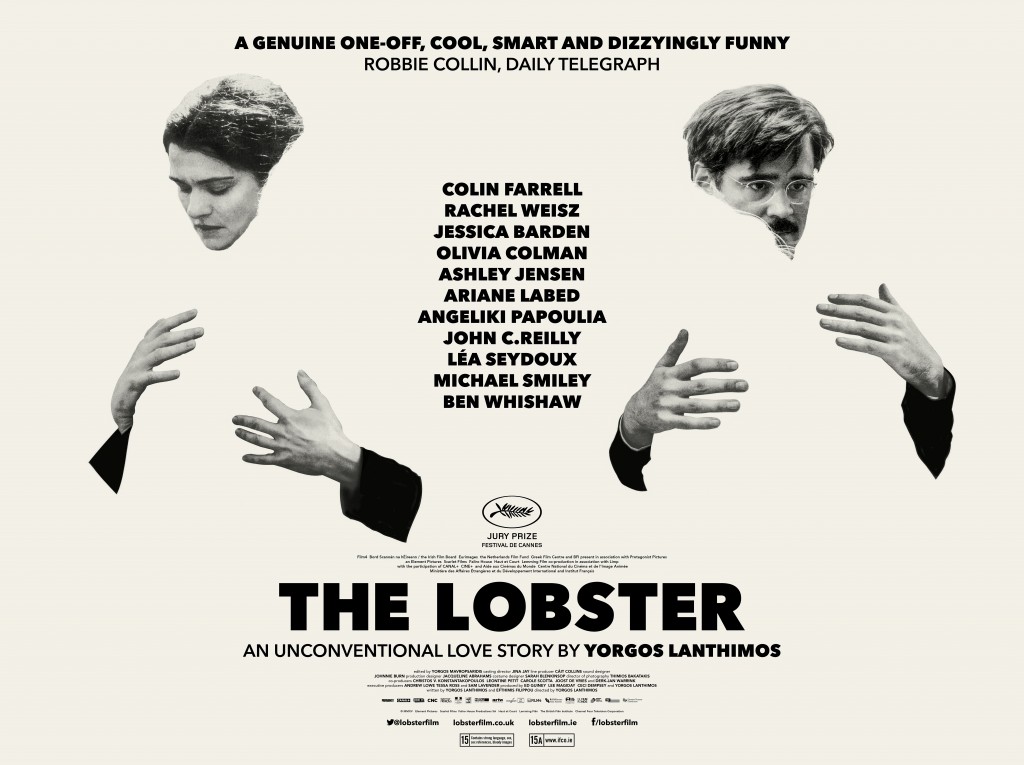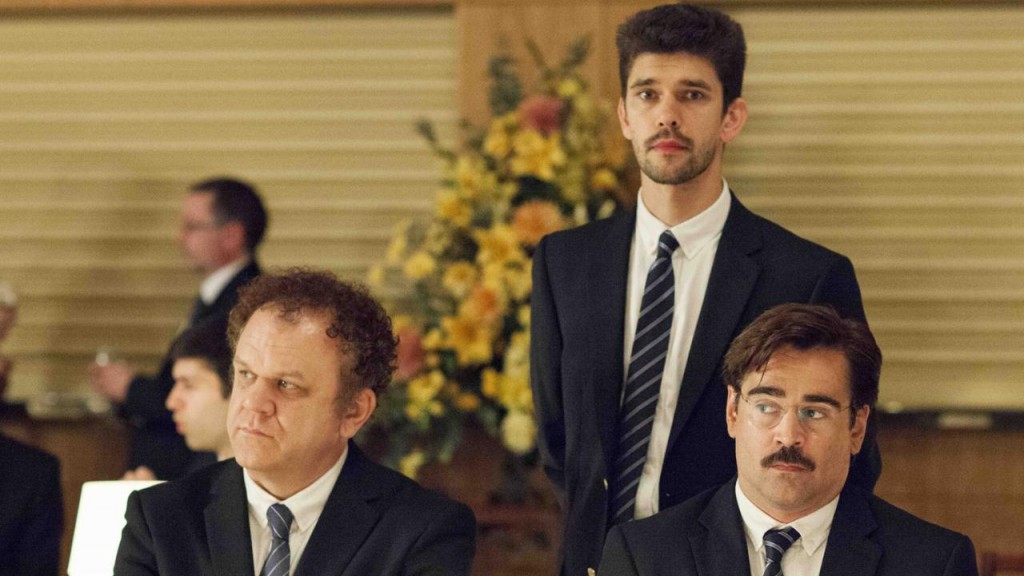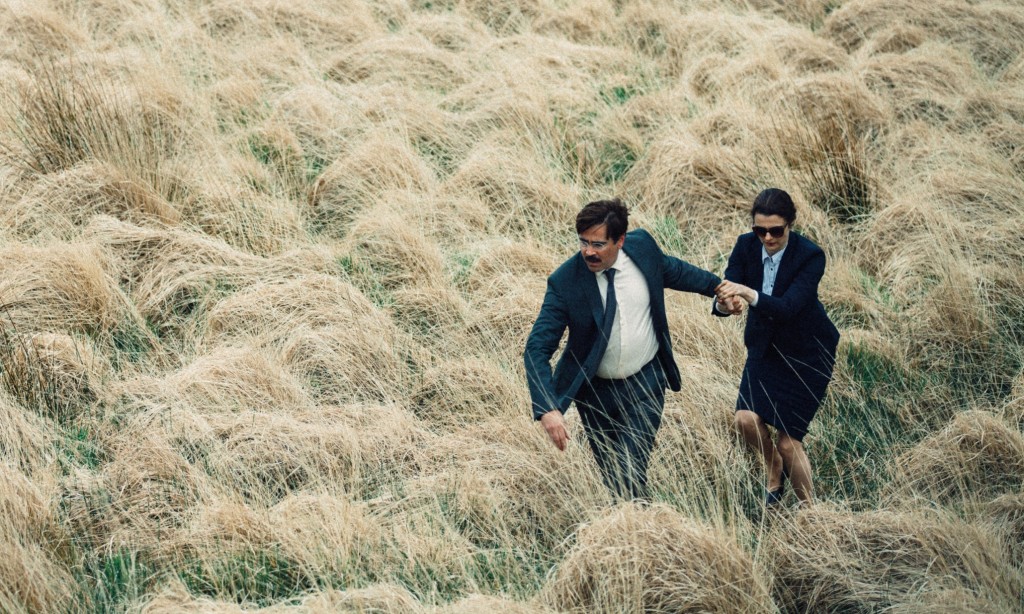By Max Levine
Director Yorgos Lanthimos is an auteur of stringent, calculated discomfort. He satirizes and fetishizes the banal. He leaves you feeling repulsed, and yet somehow so much richer for having walked away with the experience of seeing his grotesque perspective. That’s at least what most people felt about Dogtooth, Lanthimos’ breakout film that earned him a lot of notoriety at Cannes in 2009. A film about a brainwashed Greek family who keep their whole lives from the outside world, Dogtooth was an isolationist spectacle. While later popular films about the heightened intensity of human interaction/cabin fever under close quarters succeeded (i.e. Ex Machina), Dogtooth somehow managed to keep the audience constantly guessing, terrorized and perpetually intimidated by such an intimate setting. It was Hitchcock’s Rear Window, only hyperbolized and overly sexualized. It was great, but it’s not something you really want to watch for fun—unless uncomfortably slow, borderline horrifying mutual masturbation scenes are your jam, in which case, by all means, go right ahead.
That’s where Lanthimos’s newest creation differs. What’s The Lobster’s deal? The story is essentially about a world where, if you’re single, you’re brought to a place called the Hotel where you have forty-five days to find a partner, or else you get turned into an animal of your choice. Most people choose dogs, which is why there are so many dogs in the world. David (Colin Farrell), a recent bachelor, wants to be a lobster. And from there the audience is dragged by its heels to the world of the Hotel, where men and women fear death and transformation and will do anything by any means to prolong their meaningless existence. For instance, a determining factor of partners matching is if they have similar “traits.” Another bachelor only credited as “The Limping Man” (Ben Whiswaw), has to constantly smash his face against dressers so he can partner up with a girl who constantly gets nosebleeds.
Through this fib, he and his partner leave the hotel to start a new life together, all while completely oblivious to the fact that the foundation of their relationship is built on a lie. Many bachelors, like David, struggle with this conflict as a means of saving their own skins and not succumbing to their polymorphic fates. In another method, revealed in a poetic montage, the bachelors and bachelorettes of the Hotel are transported every couple of days into the woods and given a tranquilizer gun. They are told to catch any Loners (people who have escaped from the Hotel) and bring them back with them, with extra days to find a partner as a reward.
And when they’re not doing those things, the Hotel’s residents are walking aimlessly, spending restless nights watching couples dance on ballroom floors while they sit, isolated at a large banquet hall, each individually spaced many feet apart from one another. Most do not dream of companionship or love. They just want freedom. It’s small things like this uncanny macabre, magic realism that Lanthimos is toying with that makes The Lobster so remarkable. It’s funny. Maybe in how obtuse the world is, and how it takes that aforementioned spectacle level from Dogtooth and turns it into an epic. Lanthimos’s world-building methodology is not only admirable in this film, it’s mesmerizing—it has the aesthetic of a cloudy Winslow Homer painting crossed with a Wes Anderson movie with a splash of Michael Haeneke—beautiful and funny but bitter cold. Their world is a labyrinth of absurd rules (i.e. bizarre methods of corporal punishment if caught masturbating) and funny or not, it presupposes every part of these characters existence, and it feels so real.
At one point, David’s character flees the Hotel and lives out a portion of the film in the woods with the Loners, where love is forbidden. David discreetly falls in love with the woman who has been narrating the film (Rachel Weisz), and their love leads to the the film’s very harrowing and ambiguous conclusion. Lanthimos tends to capitalize on open endings that need to be reviewed and discussed again and again, and this is absolutely no exception. It goes places. It stays with you. It’s an odyssey, and a very painful one at that, but it’s a journey worth taking for any anyone looking for a bleakly comical perspective on mortality.
The Lobster is now playing in select theaters.
Max Levine is a video editor at ATB Productions in Baltimore. Sometimes performs stand-up depending on how nervous he gets. Occasionally writes for Baltimore City Paper.



